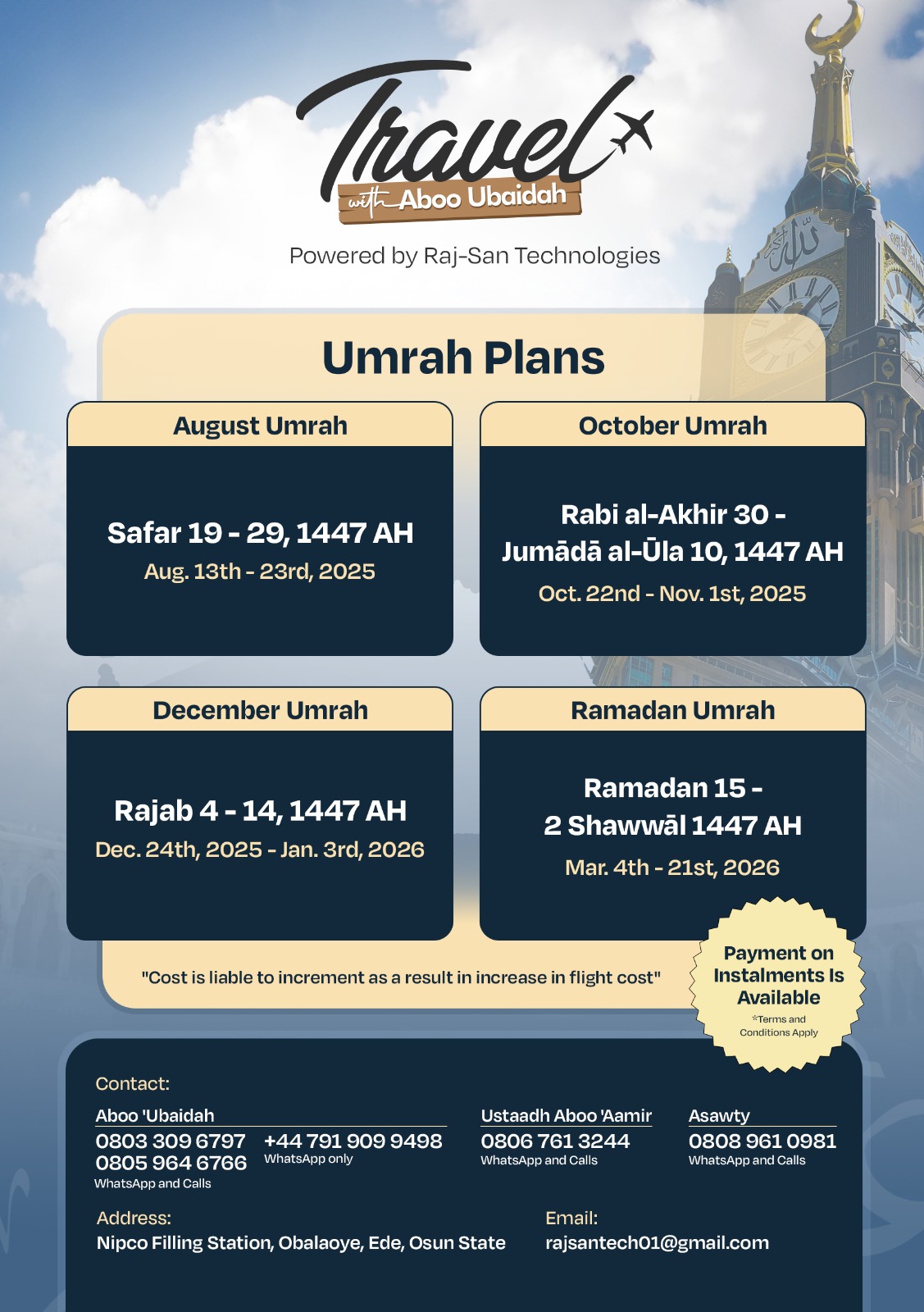A cursory look at Yoruba traditional religious system will reveal a lot of absurdities to the beckoner. Absurdities the neo-Iseses are downplaying today which however are still paramount and inseparable from the Yoruba Traditional worship system.
The Yorubas have a lot of Orisas (gods) they worship. They have Obatala/Orisa ń lá - who according to their bogus claim was sent by Eledumare (their concept of Elédùmarè does not meet the Attributes of Allaah in the Qur'aan and Sunnah, so it is wrong to call Allaah Elédùmarè) to create this world, and the creation started from Ilé Ifè. He came down from Ajule Ọ̀run (heaven) via a ladder-chain, with a cock and some sand, that when he descended at Ilé Ifè (now in Osun State), he poured the sand on the water or ocean and the cock began to spread it, till it got to places like America and Australia!
We don't know which is stupider as a theory between it and Charles Darwin's Evolution Theory!
Other deities the Yoruba Iseses worship are Orunmila, Sango, Oya, Osun, Yemoja, Èṣù (whom many have accepted to be Satan in today's religious lexicon, this is also wrong). The list can go on.
In the process of worshipping these mythological beings, the Iseses would have to engage in some rituals that are obnoxious to a good living.
An example is Yoruba concept of ẸbỠ(sacrifice), it comes in different forms. From preparing Ekuru and Eko (beans and corn swallows) etc, and placing it at strategic place in the town, most times at Orita Meta (an intersection of three paths) or more. It is often placed there in the dead of the night. It is believed that the first person to sight it in the morning will bear the negative consequences if the ẸbỠis to appease a god.
People are always scared of sighting Ẹbá». You will see them taking a different route if the information gets to them that there is Ẹbá» at a particular intersection.
Funny enough, this ẸbỠwill lie there for days until a passing dog or goat devours it or it decomposes. There are occasions of mad men eating them, or people that are brave. Muslims don't however fear such things. A Muslim would pass by it or even throw it away. No consequence, forget the threat.
Sacrifice in Yorùbáland often culminate in using human parts or a whole human being to appease the gods (se ètùtù sì ìlú). When you hear them say they want to carry out an ètùtù, be sure a big sacrifice that may involve a human life is going to take place.
An ètùtù was done whereby a life cow or ram was buried alive. They use to do this for a market square (Oja) that is going extinct, they believe that ètùtù will bring the irunmales (the spirits) back to the market. (Some pastors have been accused of burying animals in their churches).
Human sacrifices also used to take place during the enthroning period for a new king. There is even this concept of Abobaku (the person that will die alongside the king when he dies.
They say á»ba waja) 'The king has ascended the cellar', to them it is eewá» (taboo) to say a king died. That is why you don't see the graves of kings. Two theories: one, that his body parts have been buried at different places of the land. Two, that his á»kà n (heart) ìs prapared for the next king to devour, and when he eats it he will be asked as what he is eating, and he will reply mo Å„ jẹ á»ba, - I am eating a king.
A lot of secrecy in Yoruba worship system. That is why for you to know such you have to become an à wo (an initiated devotee) from being an ogberi (a novice). They do that via oro and ogboni cults (we will delve on this proper later Inshaa Allaah).
There is no gainsaying the fact that ritual killings is a phenomenon in some parts of Nigeria with South West being one of the hotbeds. The South-East and South-South are rife with those practices too. They have their own brand of Iseses. Benin land (in Edo State) is even a big ritual place. The charms there are 'hot'. This is not strange because Benin and Yoruba land have some ancestry connections.
Our casestudy is Yorùbáland, so do not let us digress because if we should pry our eyes into the Iseses of the Igbos for instance we will hear a lot of Ikemefuna and Okija Shrine news.
Once again the concern is Ilé Kaaro Oojire, ritual killings are rampant here largely because of the Isese factors.
Forget the Nollywood defence, the Babaláwos in Yorùbáland are agents of Oso (ritual of wealth) for the people. People use different kinds of humans to get wealth. People don't care to donate their loved ones so far the money would come. How many mothers, wives and children have been used as èròjà (paraphernalia) of wealth in Yorubaland? It is not an exaggeration, the Iseses themselves can testify. Though some neo-Iseses are denying it today.
The Yahoo-yahoo phenomenon of today has a root cause in Isese (and the acts of marabouts).
The discovery at Soka Area of Ibadan in 2014 is an example. A den of kidnappers was discovered filled with people on ritual 'death row'. Subhanallaah! People go there to buy body parts for eto. Laa haula wa là quwwah illa billaah.
At this juncture, it is paramount that we make this clarification. The Isese people have always been pointing accusing fingers at some 'Muslim' accomplices in their activities. By Allaah, the Iseses are right in that accusation.
(We don't however agree with that Tani Ọlá»hun specific accusations of some individuals because he who accuses must prove it).
There are some marabouts (with some ostensible Muslim affiliations) who are essentially ẹlẹ́bọ́ (idol worshippers). Yorùbáland as far as Jebba are rife with such people. You would have heard some of them saying 'If you want to be a real man you will first devour a human being!' There is what some people refer to as 'Muslim' magic that some 'Muslim' figures are believed to possess.
Let us not delve so much on that now. We promise, it is going to be the last take in this series. We shall do justice to it Inshaa Allaah.
The theme of this episode is that Isese practices are absurd and not safe for our society.
This presentation is not a culture shock (as the sociologists might say) it is a reality because we are sons of the land. Ọmá» á»ká» ni wa, we are not foreigners.
We will expand more on this in the next piece Inshaa Allaah.
Click here for the past series

